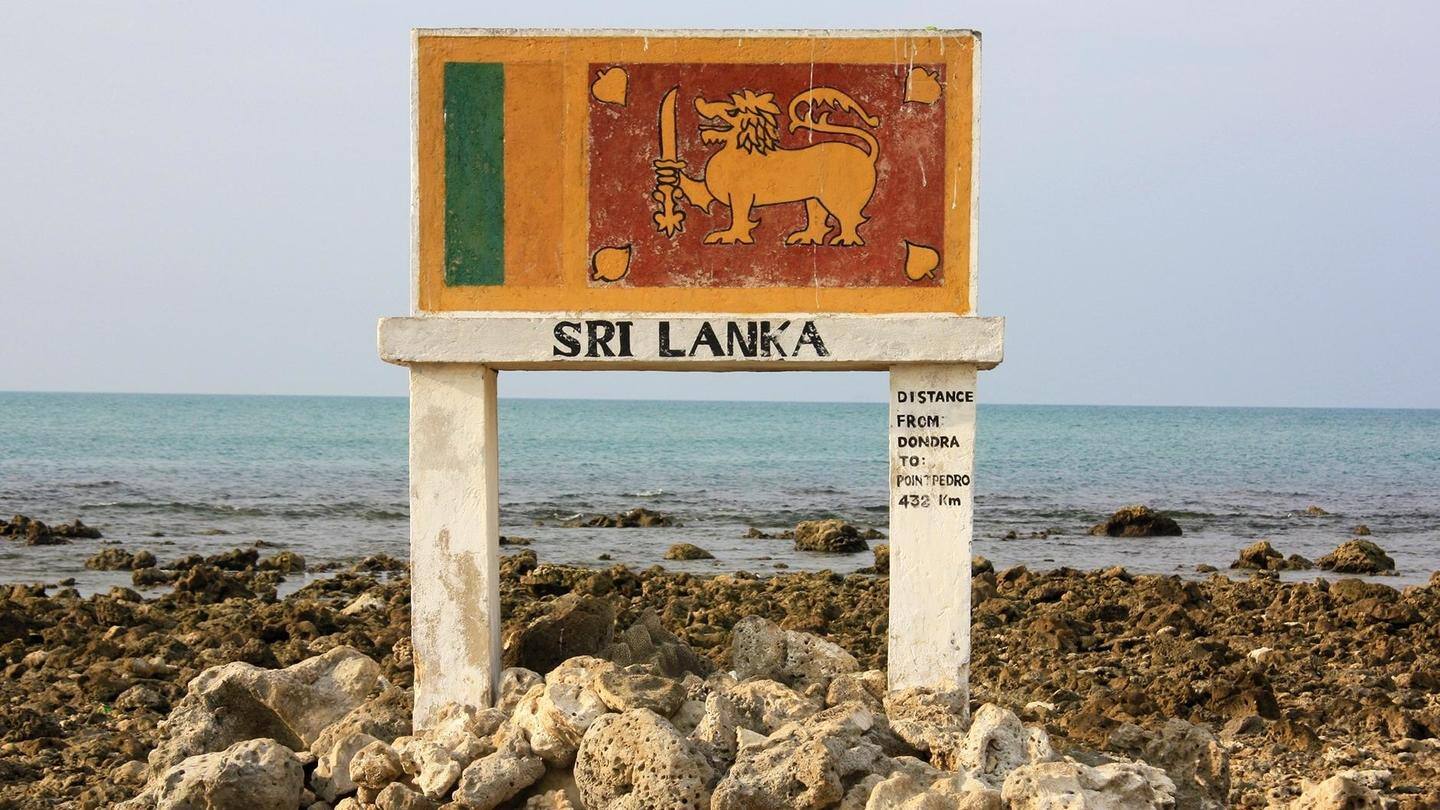
Explainer: What's behind Sri Lanka's worst economic crisis in decades?
What's the story
Sri Lanka is experiencing one of its most severe economic crises in decades, with rising inflation, weak government finances, and COVID-19 shattering the economy. Prices of everyday necessities including medicines, milk powder, cooking gas, and fuel have skyrocketed. The situation is so grave that people are facing up to 20-hour-long power cuts and standing in long queues to get petrol and diesel refilled.
Context
Why does this story matter?
People in Sri Lanka are having a tough time as the country's commercial banks are unable to secure US dollars to finance food, fuel, and medicine imports, leading to shortages. The shortage of foreign currency means that the nation has been struggling to import and pay even for essential commodities like food, medicines, fuel, etc. Meanwhile, food prices rose by nearly 25% last month.
Details
What led to the economic breakdown?
The crisis is said to have been a result of the mismanagement of government finances. The country has been in the midst of a deep financial downturn when the COVID-19 pandemic struck, reducing foreign workers' remittances and crippling the lucrative tourism sector—a key source of the country's revenue. Sri Lanka's foreign currency reserves have now hit rock bottom—plummeting 70% in the last two years.
Tax cuts
Billions in tax revenues lost
During his 2019 election campaign, Sri Lankan President Gotabaya Rajapaksa had promised to slash the 15% value-added tax nearly by half and eliminate some other taxes in order to boost consumption and growth. However, these cuts resulted in a loss of billions of Sri Lankan rupees in tax revenues, putting additional strain on the already overburdened economy, which was later hit by the pandemic.
Situation
What is happening in Sri Lanka now?
People are being forced to give up on primary needs including healthcare, with a hospital reportedly compelled to suspend surgeries due to a shortage of resources. The country has only four hours of electricity in certain pockets while thermal generators are running out of fuel. As per reports, tensions over shortages have even resulted in sporadic violence among people jostling to buy essential items.
Crisis
Commoners bearing the burnt
As per reports, daily wage earners like taxi drivers are bearing the brunt of the crisis. "There's no fresh milk or milk powder... Prices for baby milk formula are exorbitant," Sharine Silva, a mother of two, was quoted as saying by The Indian Express. Moreover, a severe printing material shortage has forced publication cuts in the newspaper and printing industries and school examination postponements.
Debt
Sri Lanka's debt estimated at 119% of GDP
Sri Lanka has $4 billion in debt to repay in 2022, including a $1 billion international sovereign bond due in July. However, as of the end of February, its reserves had dropped to $2.31 billion. The International Monetary Fund (IMF) has reportedly stated that the country's "debt overhang," and persistent fiscal and balance-of-payments deficits will cause macroeconomic instability in the near future.
Solution
What is the way out of the crisis?
According to experts, Sri Lanka has to restructure its debt and repay it over a three-year period to deal with the crisis. This will help it in saving valuable US dollars while also easing the burden on ordinary citizens who are experiencing shortages of essential items. It must also approach the International Monetary Fund to discuss an immediate relief package.
Assistance
Sri Lanka seeks help from India, China
Meanwhile, Sri Lanka has requested a $1 billion credit line from India to import essential items in addition to the $1 billion credit line already provided by New Delhi. India has also offered a $400 million currency swap and a $500 million credit line for fuel purchases to Sri Lanka. Colombo is also negotiating with China for an extra $2.5 billion in credit support.
Data
Sri Lankans are abandoning their country
While India and China have pledged their respective support to Sri Lanka's President Rajapaksa, the citizens of the island nation are abandoning their country's sinking economy and have started arriving in large numbers on Indian shores.